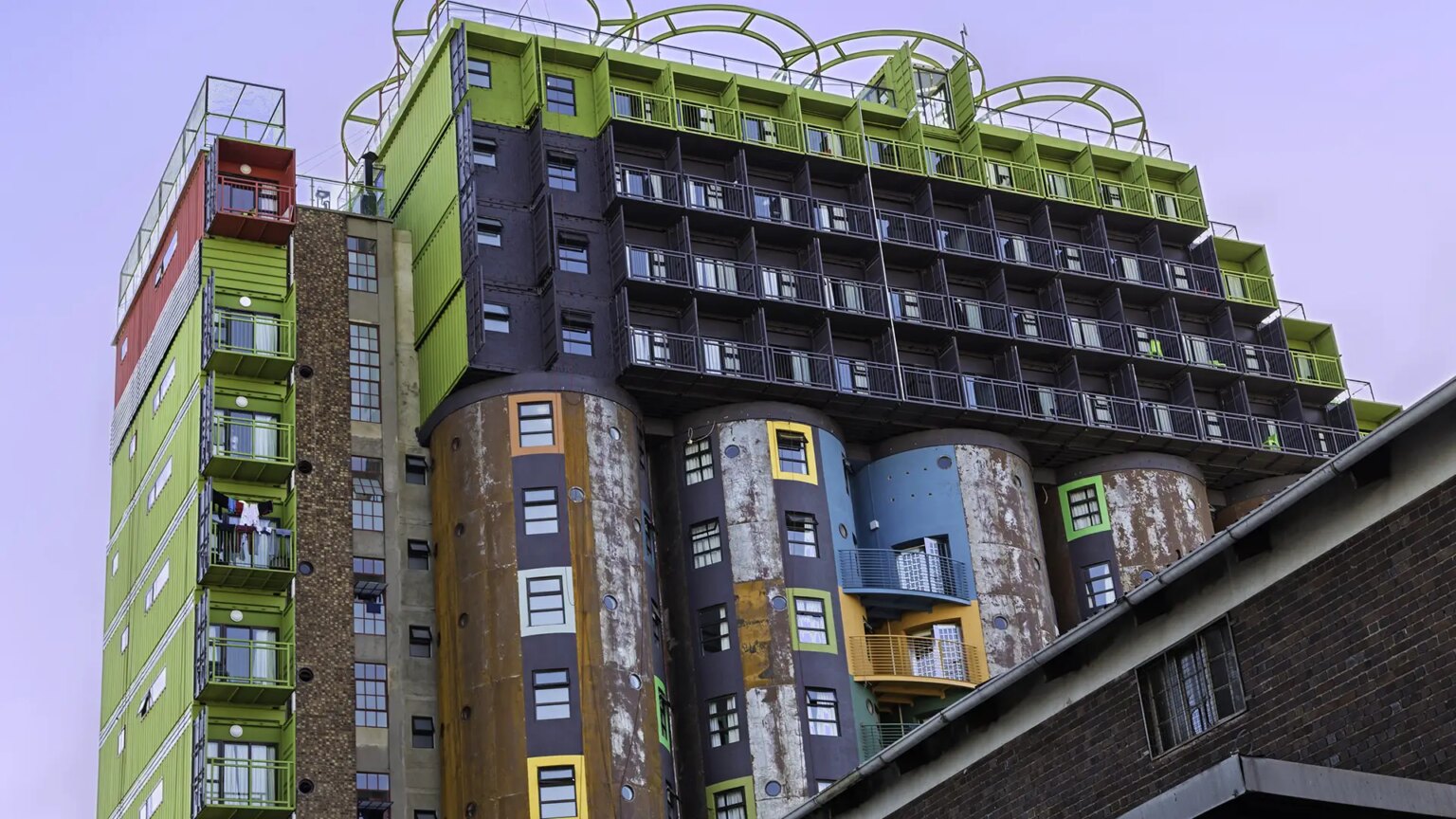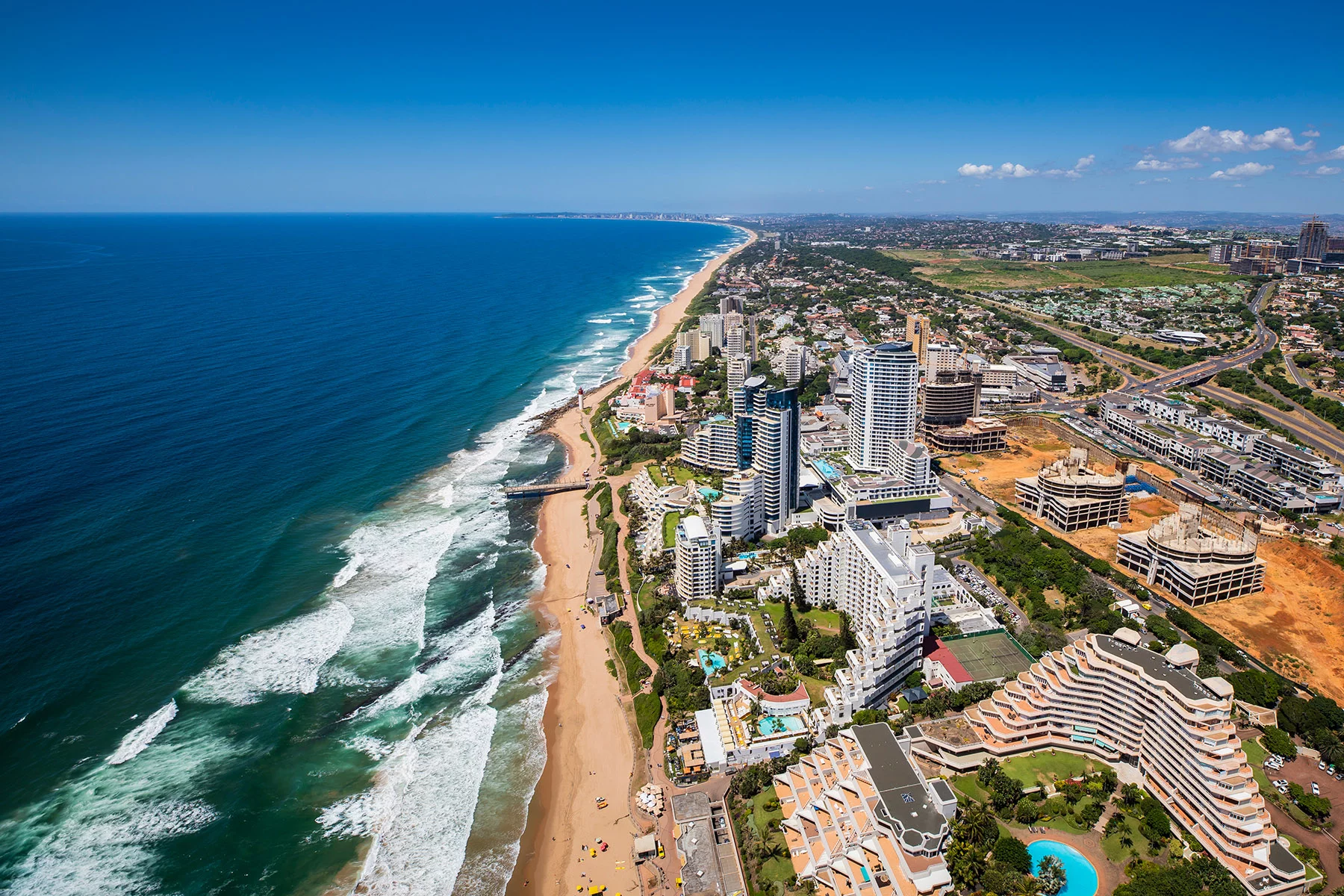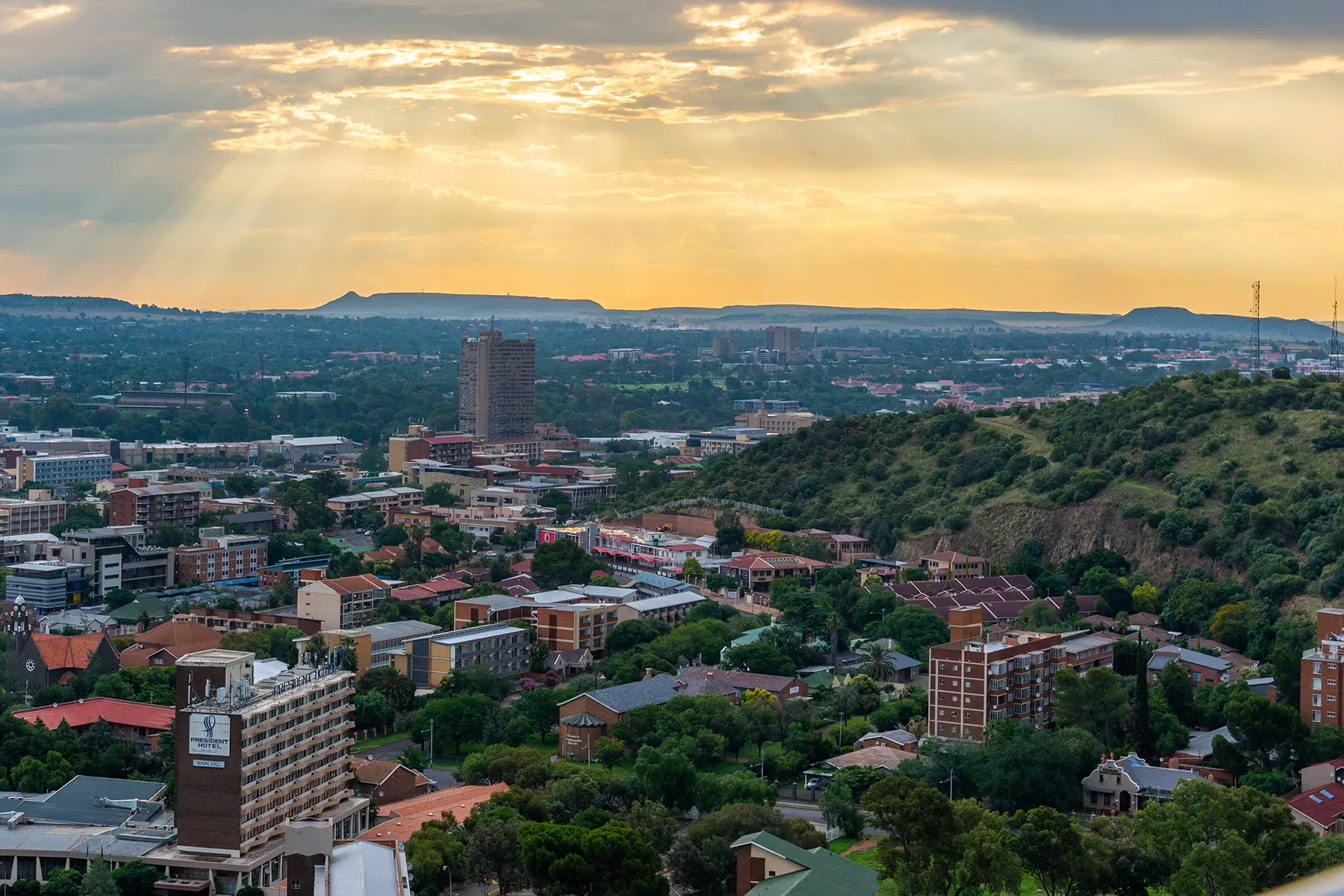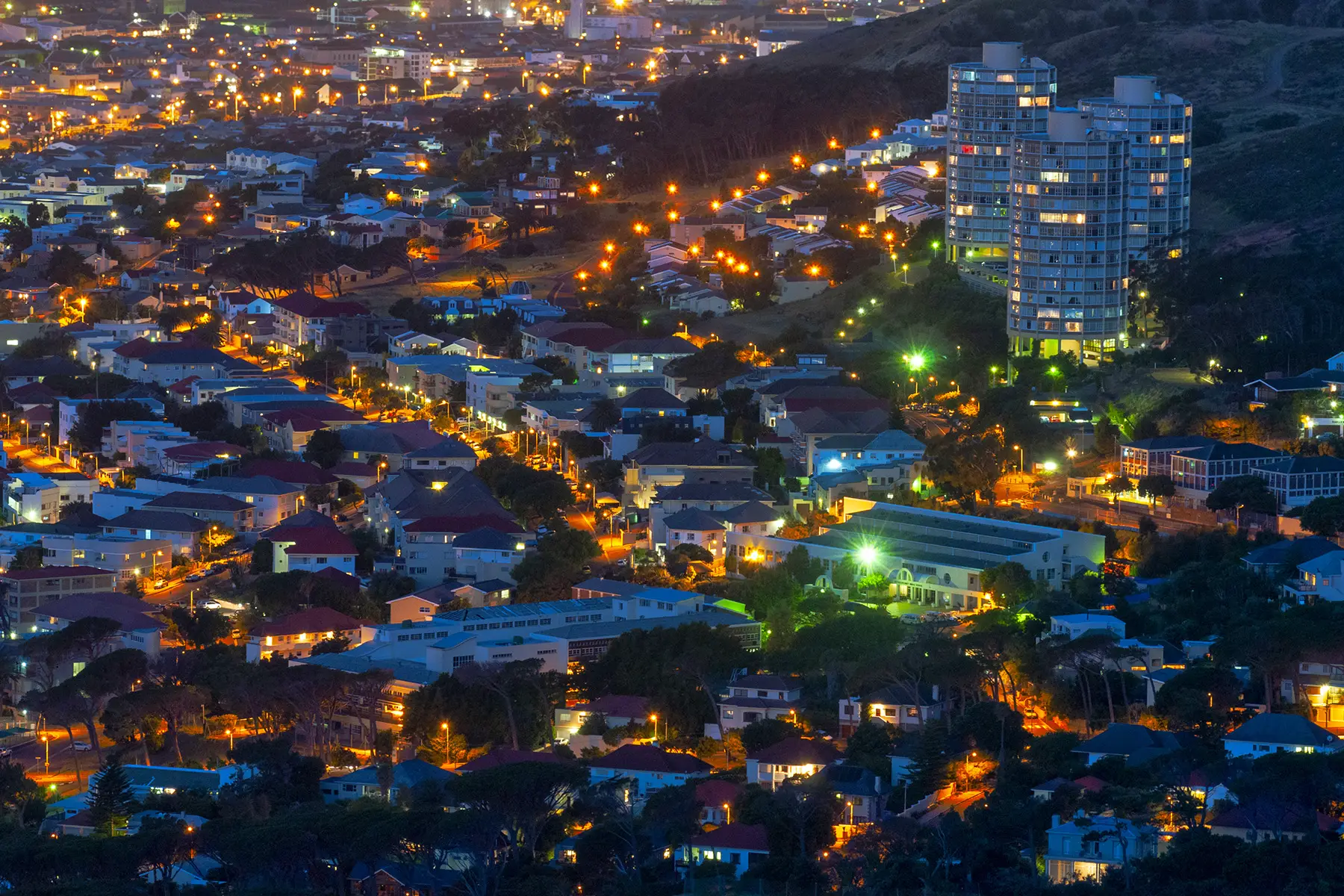Moving to a new country is exciting. You’ll be learning the culture, food, and language of a new place. You will need to do a million things in your first week, from finding a home, setting up a bank account, getting a phone, and more. If you are looking for a place to rent, though, it is also important to understand your local tenant rights in South Africa.
While the process of renting a home in South Africa is similar to that in other countries, you should be aware of your rights and responsibilities and understand how to go about making sure everything is legal and you are protected. This guide will take you through everything you need to know by covering the following topics:
- Renting in South Africa
- Popular places to rent in South Africa
- Types of South African properties to rent
- Finding a place to rent in South Africa
- South African student housing
- How to rent a property in South Africa
- Rental costs in South Africa
- Social housing in South Africa
- South African tenancy contracts
- Utilities and telecommunications
- Moving in and moving out in South Africa
- Renting out your home
- Tips for renters in South Africa
- Useful resources
Renting in South Africa
Renting is becoming an increasingly popular choice in South Africa. In fact, recent estimates show that 3.7 households in the country are rented, an increase of 33% from 10 years ago. This is despite the average residential rent increasing from R7,854/month in 2020 to R7,906/month in 2021, representing a 0.8% year-on-year increase.
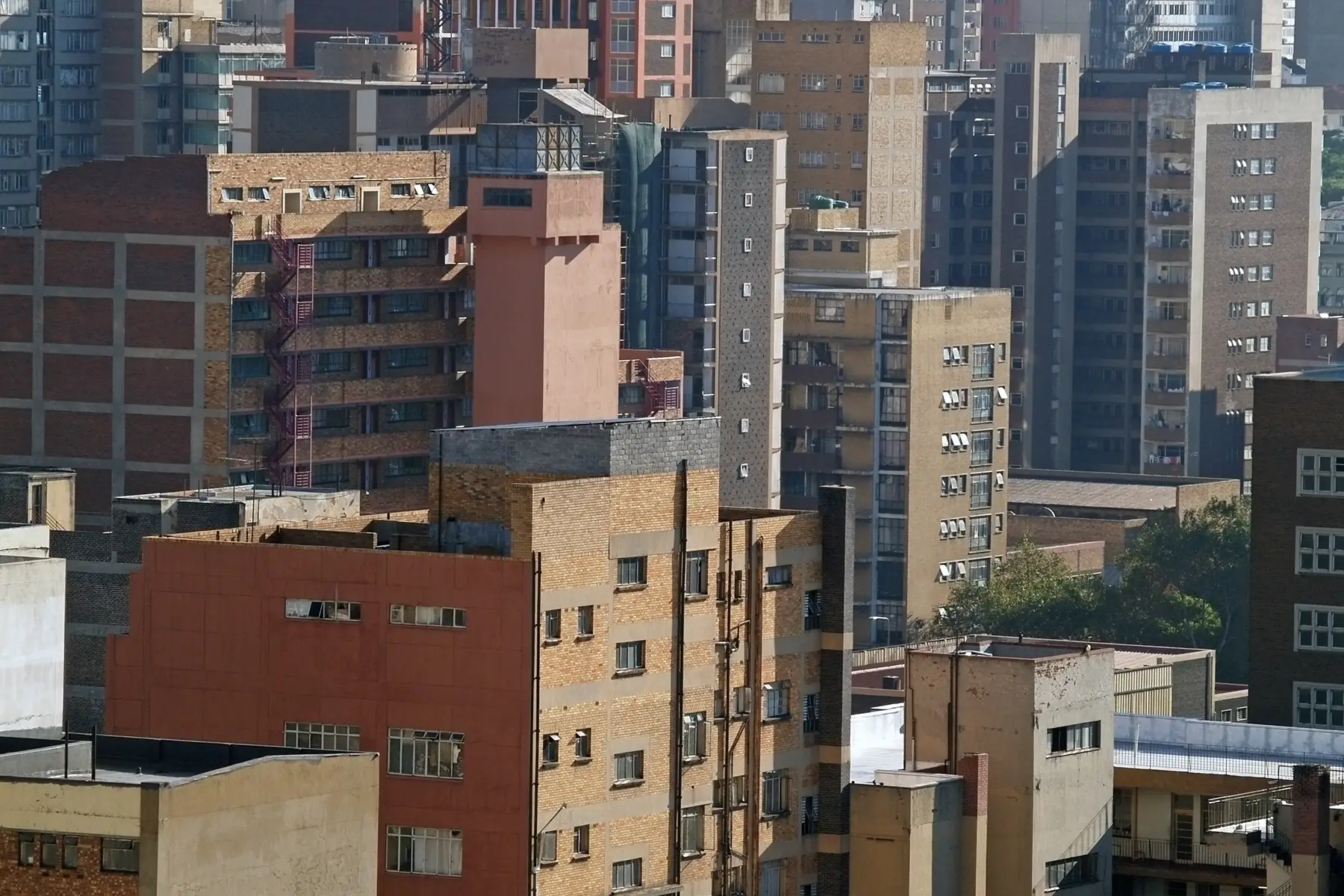
In 2022, all nine provinces in South Africa saw an increase in rental prices for the first time since 2017. The growth was most noticeable in the Northern Cape region, which saw a 9% increase in price, compared to the national average of 2.5%.
Many expats in South Africa prefer to rent properties, especially if they know they will only be in the country for a defined period of time. Luckily, the process of renting and the approach to tenant rights in South Africa are similar to those in other countries.
Popular places to rent in South Africa
Cape Town
One of the most popular South African cities for expats, Cape Town is known for its history and stunning natural landscapes. As such, the Western Cape region, of which Cape Town is the main city, saw an influx of around 470,657 immigrants between 2017 and 2021.
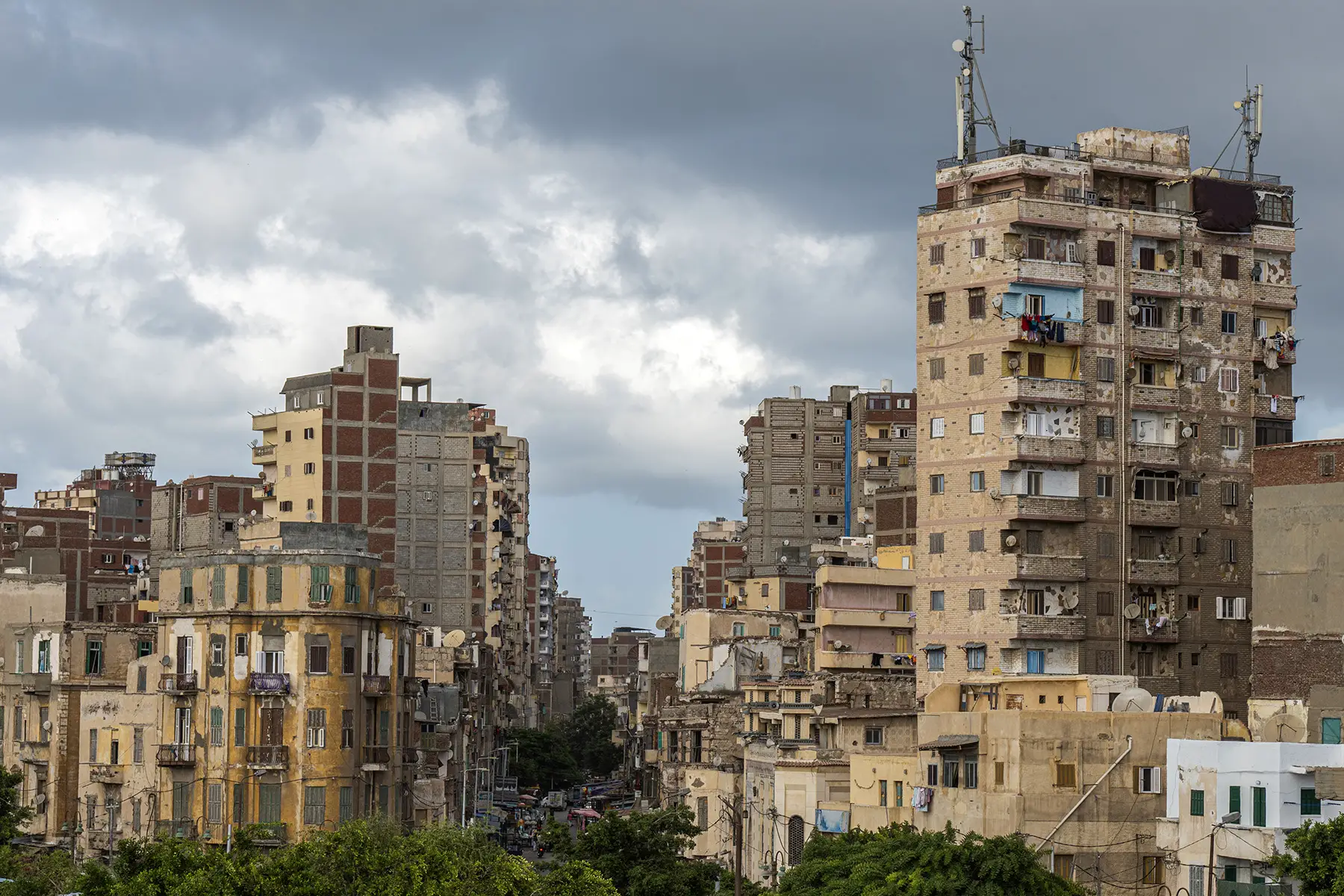
Perhaps because of its popularity, Cape Town is also the most expensive city in South Africa for residential properties. Rental prices can vary greatly here, depending on the accommodation type and location.
Because of their proximity to the University of Cape Town, the Southern suburbs—which include Woodstock, Claremont, and Kenilworth—have some affordable options. As such, you can find a two-bedroom flat in Plumstead of Diep River for around R7,000/month, for example. A similar apartment in the City Bowl (which contains Cape Town’s central business district) would likely cost R13,000–20,000/month. Houses are, of course, far more expensive. A four-bedroom house in a gated estate in Clifton, on the Atlantic Seaboard, would set you back around R125,000/month.
Johannesburg
South Africa’s largest city, Johannesburg is popular with expats because of its strong economy and concentration of major companies like Deloitte, Amazon, Unilever, and BMW. As such, over 1.5 million immigrants came to the Gauteng region, where Johannesburg sits, in the five years up to 2021. The city is undergoing a bit of a renaissance, making way for pockets of gentrification that boast vibrant cafés, restaurants, and boutiques.
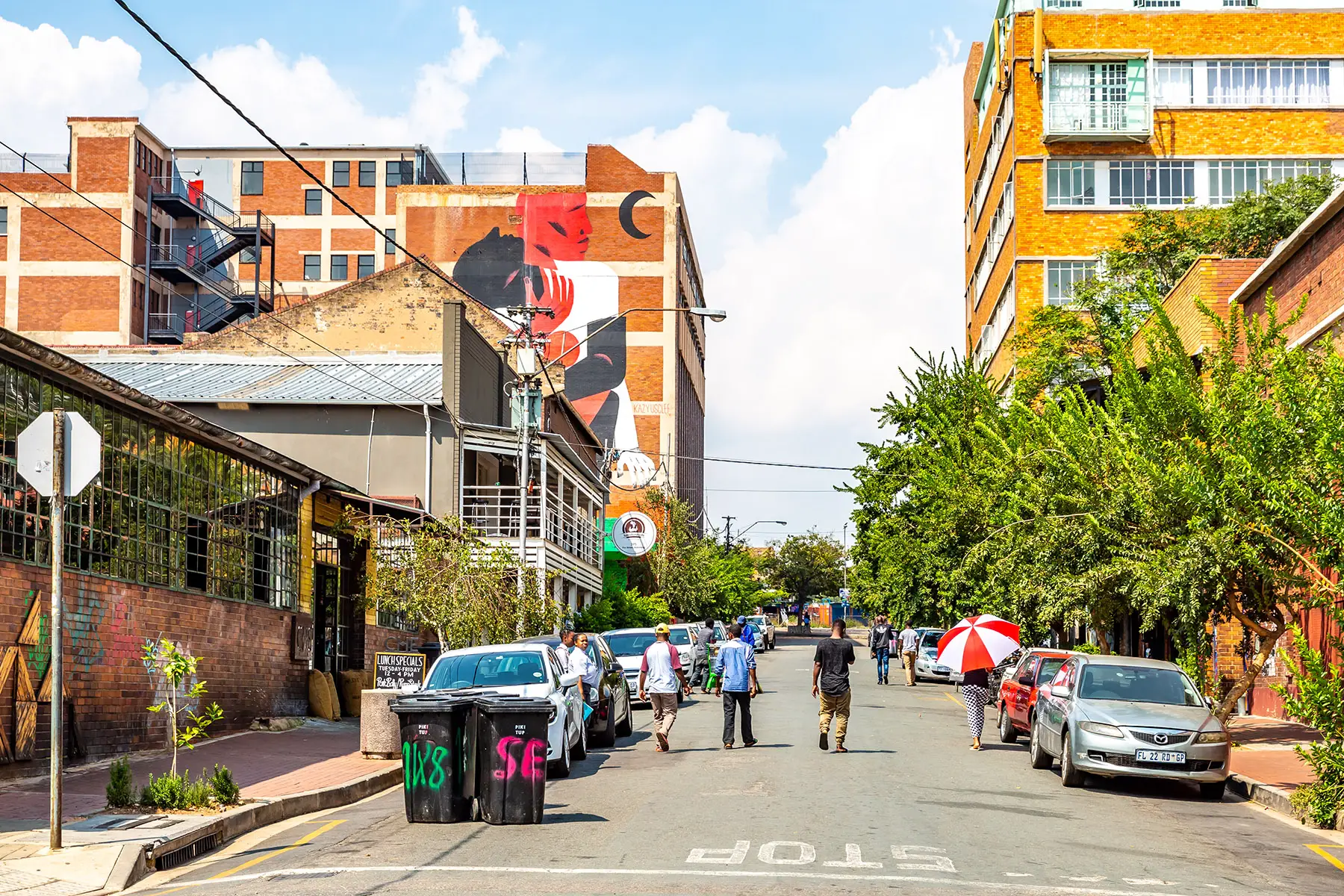
As in Cape Town, rental rates in Johannesburg can vary greatly. Smaller homes in the city’s southern suburbs, for instance, can be quite affordable, while major economic hubs like Sandton will render a much higher price tag. Some expat families in Johannesburg prefer renting in gated estates or controlled access communities due to a perceived increase in safety. These are, of course, far more expensive.
Durban
South Africa’s third-largest city, Durban is known for its beaches and warm weather. And, it has the advantage of cheaper rents and an overall lower cost of living than Cape Town. Many expat families flock to the suburbs of Morningside, Beara, Musgrave, and Durban North, which are reasonably peaceful and close to the city center, though Kloof is also popular, if further afield.
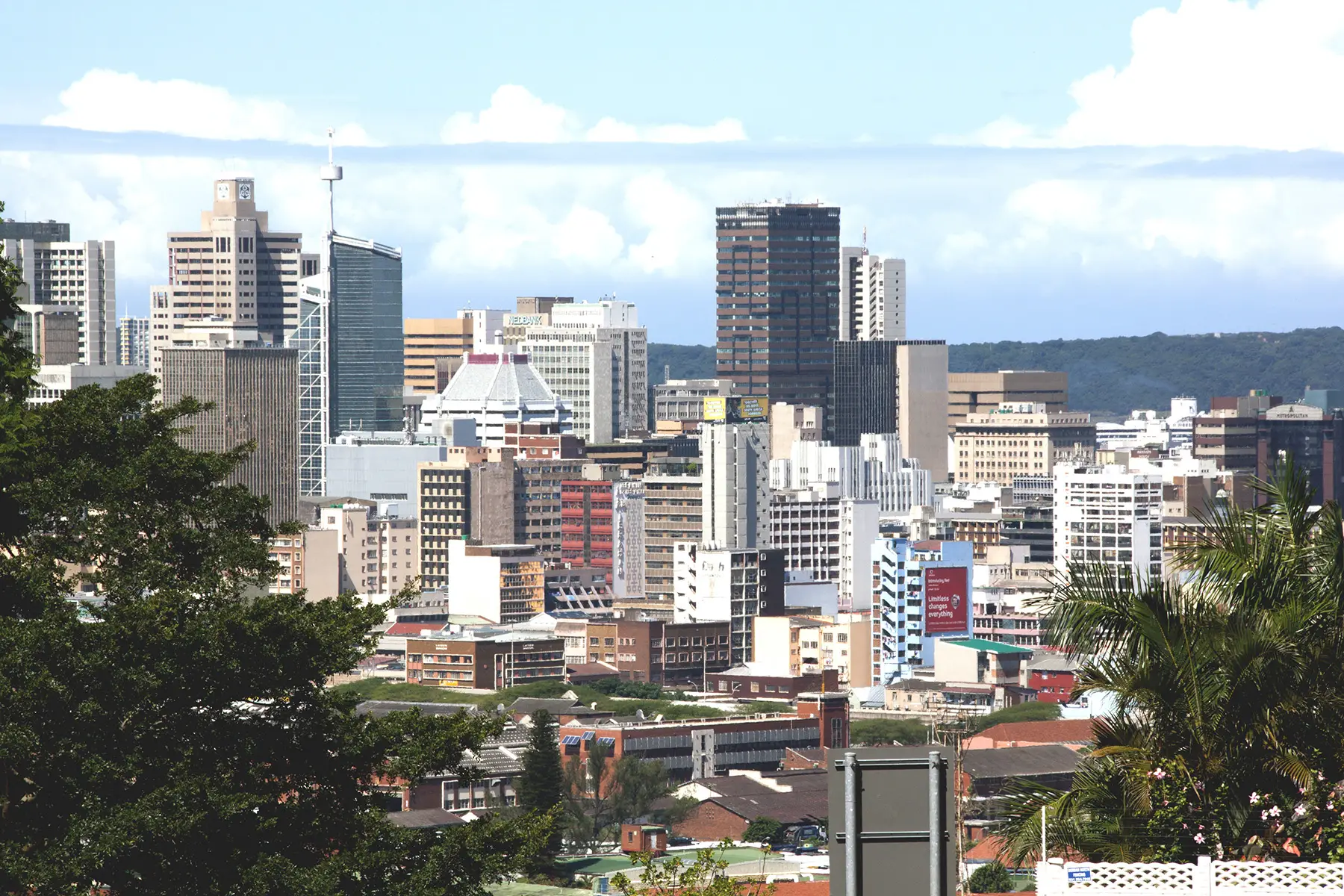
Rental prices in Durban differ greatly depending on the style of accommodation and the property’s location. For example, it is possible to find a bachelor unit in Pinetown for R4,000, or a four-bedroom villa-style home in Morningside for R40,000.
Types of South African properties to rent
South Africa has a wide range of accommodation options. Here are some of the most popular styles:
- Bachelor flat: Usually a one-bedroom apartment with a separate living/dining area, kitchen, and bathroom ideal for single tenants.
- Flat: A regular apartment, normally available with one, two, or three bedrooms, plus kitchen, bathrooms, and living/dining space.
- Townhouse: A home set in a compound of around 20–30 others that comes as a single-floor unit or duplex. Tenants generally pay maintenance fees for the complex.
- Cluster house: A family home set in a complex that also offers facilities such as a pool and gym. These houses generally come with a private garden.
- Cottage: Standalone housing that is often set within the grounds of an estate. A cottage is a smaller building that is separate from the main house on the estate.
- Detached house: A standard family home.
Finding a place to rent in South Africa
While it’s possible to rent homes privately in South Africa, the majority of lettings are conducted through real estate agents. Renting a home through an estate agent can give you extra peace of mind. This is because all agents in South Africa must register with the Estate Agency Affairs Board. Many are also members of the Institute of Estate Agents of South Africa.
Online portals
As in many countries, most expats in South Africa begin their accommodation search online, through apps or websites. These are useful for looking at the types of properties available in the country and getting an idea of rental prices. Some of the top rental sites in South Africa are:
Property agents
These full-service rental agencies can help you look for properties within your specifications and manage all the necessary paperwork. Because of their expertise, they will also be able to offer advice on tenant rights in South Africa and answer any questions you might have. There are numerous estate agents in the country, and you can find many in the white pages or yellow pages.
Other popular agents include:
Newspapers
You can find advertisements for rental properties in the classified sections of most major newspapers in South Africa. This might include the Mail & Guardian, for example.
South African student housing
There are several types of student housing available in South Africa, depending on each student’s needs. In general, these offer similar tenant rights in South Africa as other types of rentals. However, properties that are specifically affiliated with universities may have slightly different requirements.
On-campus accommodation is quite popular because these properties are usually located within or close to a university, offering great convenience. These dormitories are usually shared apartments that offer communal kitchens and living areas, as well as private or shared bedrooms. Many of these also come with furniture and meal plans, making the cost of living more affordable for students. Most South African universities, including the University of Johannesburg and the University of Pretoria, offer on-campus accommodation options.
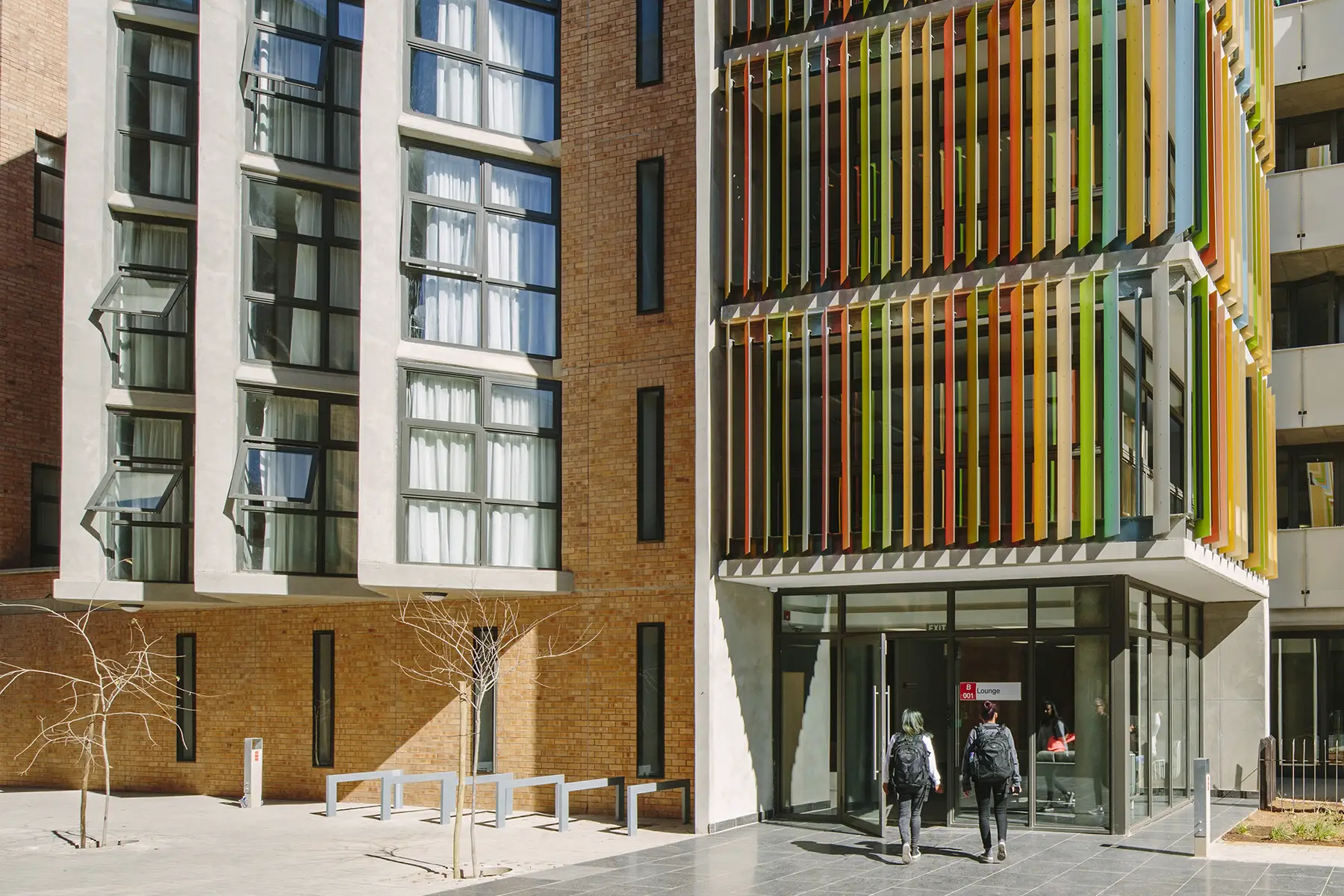
Because university accommodation can be limited and competitive, South African university cities also have many private halls of residence. These are dormitory-style accommodations created for students but are not specifically affiliated with one university. In the country, some examples include Campus Key, Nest, and Heron Square.
Of course, some students prefer to live in regular private rentals while studying at university. In this case, students would have to go about looking for properties and going through the paperwork as they would for any other rental property. The advantage here is that they would have the same tenant rights as other properties in South Africa.
How to rent a property in South Africa
Most expats find rental properties in South Africa through an estate agent. To begin the process, hire an agent to show you a few properties that meet your specifications. Alternatively, you could shortlist a few properties that you find online and arrange viewings directly with the agent. Once you find a property you like, you usually have to make an application and provide some personal documents such as your ID and visa. At this stage, the estate agent may ask you to pay a non-refundable holding deposit.
Once the landlord approves your application, you must pay a deposit on the flat. This is normally amounts to one month’s rent. You may also need to pay a fee that allows the agent to contact references, draw up the lease, and confirm your details with your employer. Once all this is complete, you then finally sign your rental agreement. When you go to sign your lease, be sure that all of the details in the contract are correct and that everything is in line with tenant rights in South Africa.
Before you sign your tenancy agreement, you usually visit the property with the estate agent to create a full inventory report. This includes a list of all items within the property that belong to the landlord and a detailed condition report that sets out any existing problems with the property. You generally sign this at the same time as the tenancy agreement, and it can be used in case of any disputes when you move out.
If you intend to rent through a private landlord, you go through the same process and require the same paperwork. However, be especially careful to ensure that the rental agreement adheres to the standard tenant rights in South Africa.
Rental costs in South Africa
Monthly rent
The average rent in South Africa is R7,786. However, rental prices differ greatly across cities, neighborhoods, and housing types. The country’s two biggest cities—Johannesburg and Cape Town—are, of course, the most expensive.
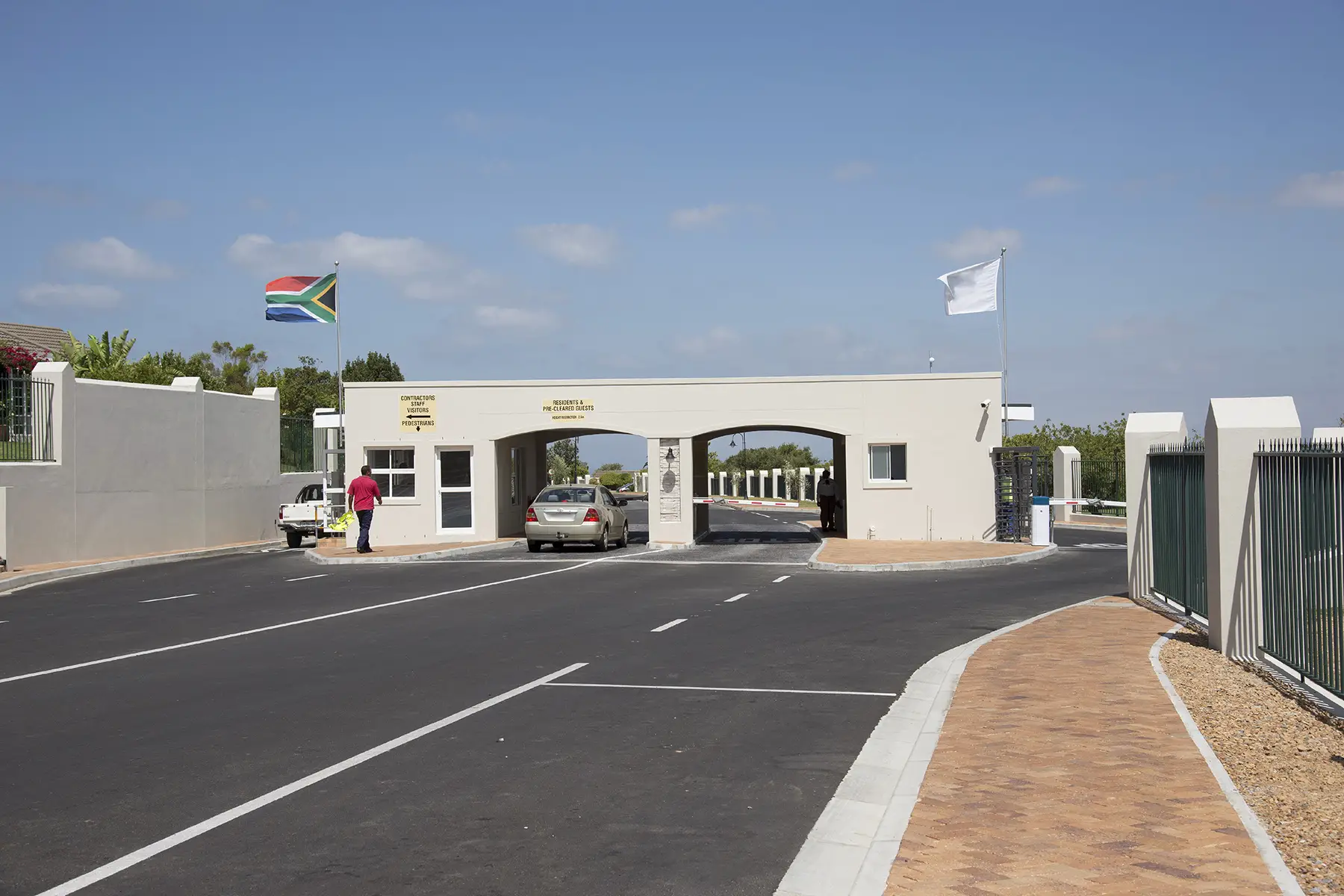
But even here, it is possible to find affordable options. In Johannesburg, for example, rentals for bachelor units might range from around R2,300/month to R7,750/month. Similarly, three-bedroom units start at about R4,800/month in Yeoville and can go up to R13,250 in the suburb of Sandton South or an eye-watering R90,000/month for a four-bedroom house in a gated community. Cape Town is significantly more expensive, with rents for bachelor units in Goodwood averaging R4,167/month and rising to R23,500 for three-bedroom units in Bantry Bay.
In general, tenants pay rent once a month through an automated direct debit from your bank account or through a bank transfer. Tenants also pay some extra fees on top of the rent. These might include things like electricity, water, and telephone bills, TV, internet, and management fees for gated estates, for example.
If you do not pay your rent, the landlord can take steps to rectify the situation. As part of tenant rights in South Africa—as laid out in the Rental Housing Act—the landlord cannot cut off your electricity or water supplies, change the locks, seize your goods, or otherwise harass you. In addition, they cannot infringe on the privacy of the tenant. Instead, the first step in case of non-payment of rent is to notify the tenant, in writing, of the breach and give 20 days to make the payment. After this, tenant rights in South Africa are forfeited, so the landlord may legally cancel the lease and begin the eviction process.
Rental deposit
In general, tenants pay four weeks’ rent as a deposit for your rental property. However, the landlord can legally ask for up to eight weeks’ rent for the deposit. Legally, the landlord must place the deposit in an interest-bearing account, and the money can only be used to carry out repairs during the tenancy. According to tenant rights in South Africa, the landlord must return the deposit and any interest earned to the tenant at the end of the lease—minus any repair expenses.
Agency and administration fees
Aside from the rental deposit, you may pay some agency and administration fees when leasing a home in South Africa. These can vary according to the agency, but they usually include an application fee, costs for reference checks and credit verification, and a fee for drawing up the lease. Expect to pay a total of around R1,150 before you actually sign the tenancy agreement.
Other costs
As you settle into your new home, there will be other fees and costs that pop up. For example, you need to pay regular utility bills. These can include:
- Electricity: R800 connection fee plus R2,558 per kWh
- Water: first six cubic meters free, then R2–4 per cubic meter
- Internet: around R899/month
Depending on your home, you may also need to pay additional fees for maintenance, gardening, or security.
Social housing in South Africa
While there are housing schemes and subsidies available to aid South African nationals on low incomes through the National Housing Finance Corporation, there aren’t any formal schemes in place to help foreign nationals rent properties.
South African tenancy contracts
In general, rental agreements in South Africa last for two years. However, it is possible to sign an agreement for shorter or longer periods of time, depending on the landlord. Regardless of the length of the agreement, your lease should include:
- The landlord’s name and address
- Your name
- The address of the property
- The estate agent’s details
- The rental amount and a schedule for payments
- A stipulation about when a rent increase is possible and by how much
- Landlord and tenant obligations
- Termination conditions (e.g., failure to pay rent)
- Break clause
In addition to the lease agreement, you should sign an inventory report to minimize the chance of a dispute when you move out.
You and the landlord both need to sign the agreement, and there should be at least three copies—one for you, the landlord, and the estate agent.
Tenant rights and obligations
Tenants have certain obligations upon signing a rental agreement in South Africa. These include:
- Paying rent on time
- Taking care of the property and returning it in the same condition in which it was received (except for usual wear and tear)
- Only using the property for the purpose stated in the agreement
- Vacating the property at the expiry of the lease agreement
Of course, when leasing a property, you receive tenant rights in South Africa. Some examples of these include:
- Subletting the property without the landlord’s consent (unless there is a specific stipulation against this in the rental agreement)
- Receiving a receipt for all payments, including deposits and rental payments
- The landlord cannot increase the rent except for what is specified in the rental agreement
Landlord rights and obligations
Landlords also have certain obligations that they must legally comply with when letting a property. These include:
- Delivering the property and all the necessary parts for the tenant’s use (e.g., keys, remotes)
- Maintaining the property in good condition for the duration of the lease (including regular safety checks and maintenance)
- Ensuring that the tenant can enjoy the property without unnecessary disturbance
- Paying any municipal taxes unless otherwise stipulated in the lease agreement
Of course, the landlord also has certain rights. These include the right to receive rent as laid out in a lease agreement and the right to evict a tenant for non-payment. Landlords also have the right to use deposits for necessary repairs during and immediately after a tenancy.
Where to go in the event of a dispute
In the event of a dispute between a tenant and landlord, the Rental Housing Act allows for a Rental Housing Tribunal. These are free services to resolve any disputes arising from residential rentals.
To lodge a complaint, you must visit an RHT office or call 0860 106 166 / 011 355 4000 / 012 483 5020. You must provide your ID, the lease agreement, and proof of payment. While the case is under review, the tenant continues paying rent and the landlord cannot evict the tenant.
Utilities and telecommunications
Setting up your new home in South Africa will also require you to figure out the local utilities and telecommunications options.
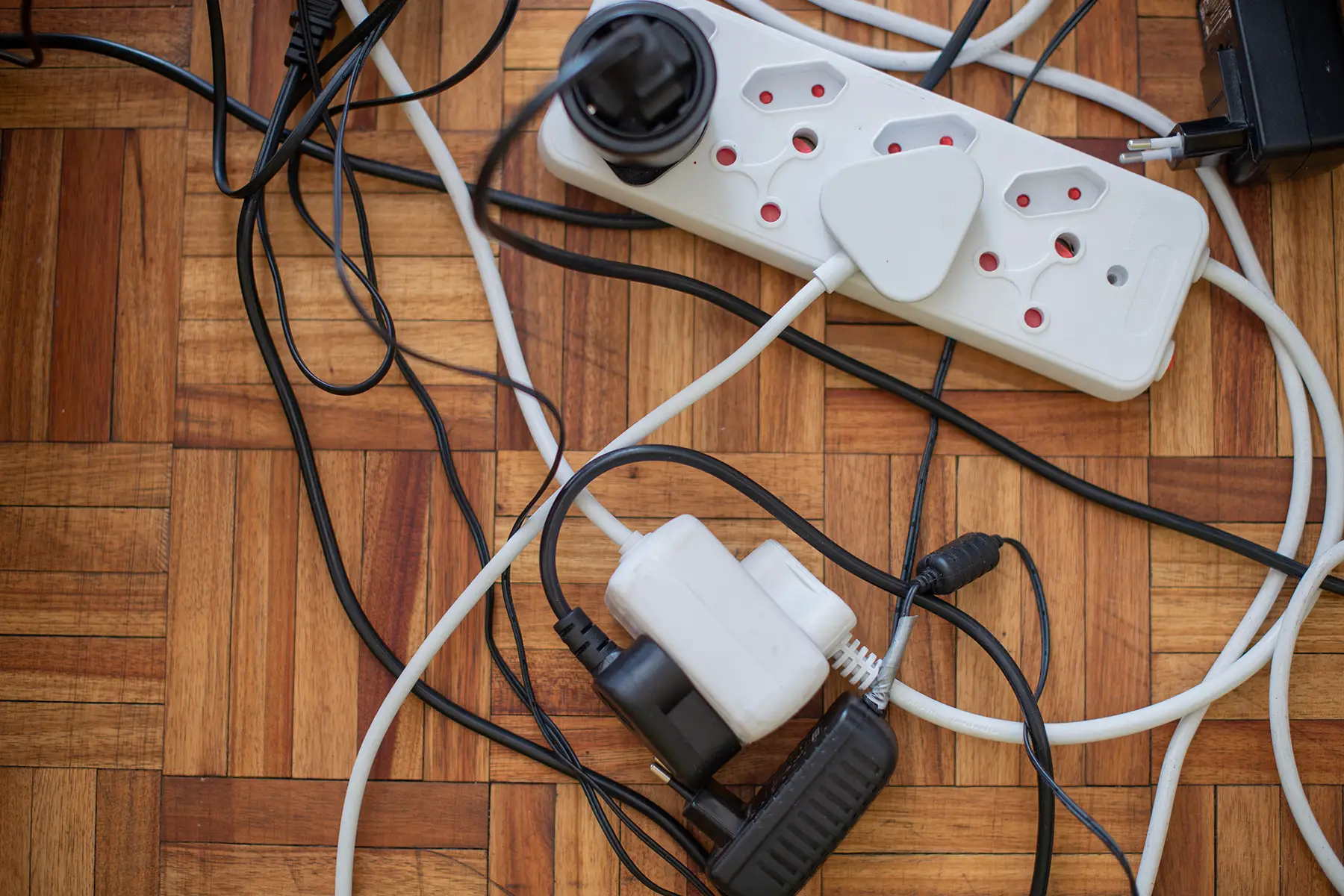
This is usually pretty simple. You generally just contact the relevant service provider and set up an account for your new address. However, in some cases, you may need to shop around to find the right service for you. Here are a few suggestions:
- Electricity: Eskom is South Africa’s sole provider of electricity
- Gas: You will likely get LPG cylinders from Total, Afrox, or Reatile
- Water: Water supplies are overseen by the Department of Water Affairs (DWA), but you must go to your regional water board in order to organize a connection
- Mobile phones: pre- and post-paid options are available from Cell C, Vodacom, MTN, and Telkom
- Internet: Home broadband plans are available from a variety of internet service providers, including Telkom, MWEB, Axxess, Vox Telecom, WebAfrica, and Afrihost.
- Television: a number of channels are provided by the South African Broadcasting Corporation (the state-owned broadcaster), community stations, and digital satellites. You will need a South African TV license.
Moving in and moving out in South Africa
Once you sign your tenancy agreement, you can usually move in immediately. However, an official start date is usually written into the agreement, and you thus take possession only from then. Be sure that you have a full inventory report that lists any problems with the property and included furnishings signed by the landlord and yourself.
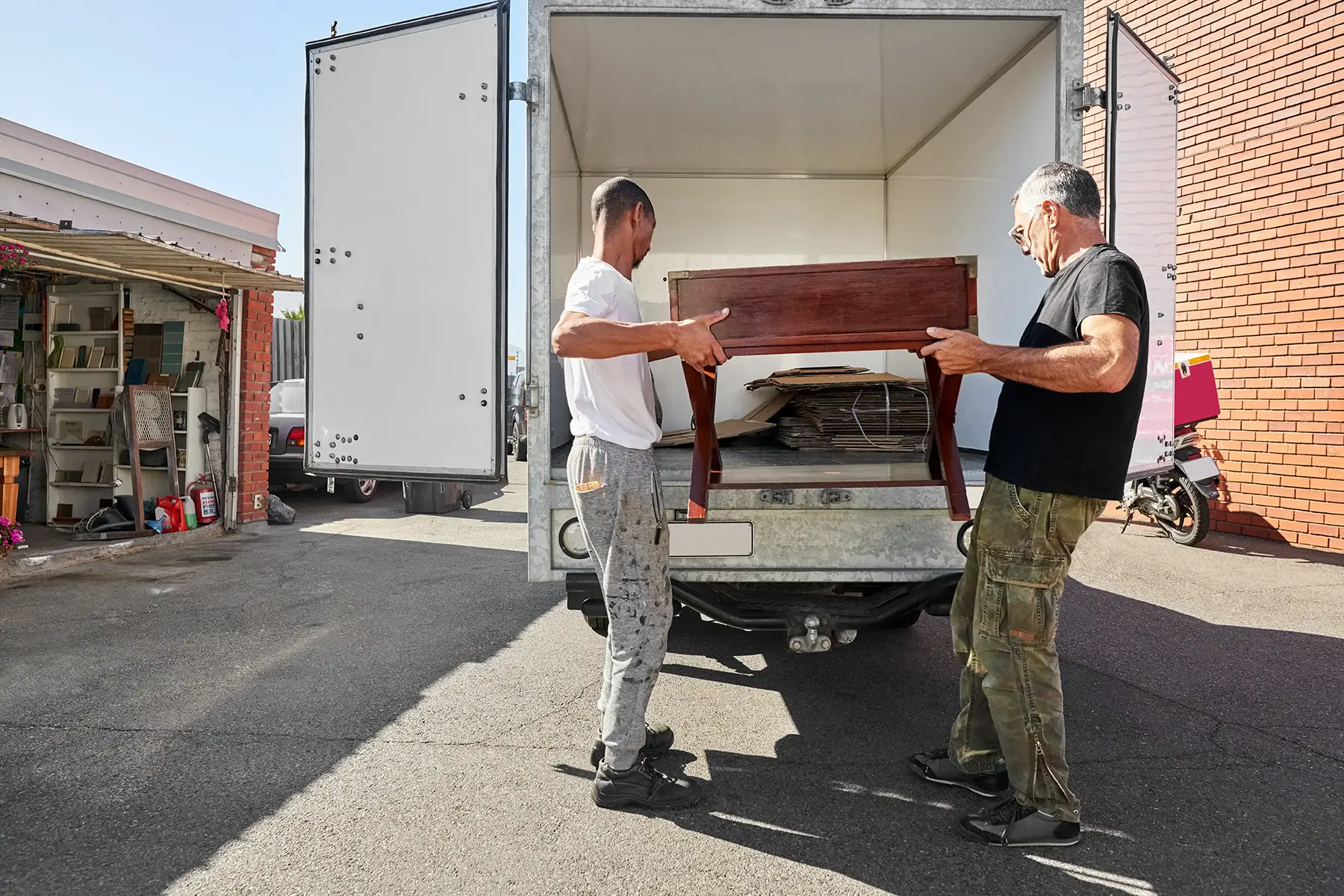
When you are ready to move out, you must give your landlord proper notice. In general, this amounts to one month in advance. You also must give notice even when you plan to move out at the termination of the lease agreement. However, if you are still within the term of your contract, things are a little more complex. Ideally, your tenancy agreement has a break clause that lays out how you can terminate your lease early. If it does not—and your landlord has not violated any of the terms of the agreement—you can usually give 20 days’ notice, but you must also pay a fee that covers the reasonable costs of finding a new tenant.
When you move out, tenant rights in South Africa stipulate that you get your deposit back. However, the landlord can make fair deductions for the costs of any damages. You are also entitled to any interest earned on the deposit while you were living in the property. Usually, your estate agent or landlord conducts an inspection when you move out to determine whether any deductions must be made to cover repairs. If you are entitled to the full deposit, you should receive this within a week. If there are any damages, though, the landlord has 14 days to return your deposit (minus damages). In addition, if you do not attend the inspection in person, the landlord can take up to 21 days to refund your deposit.
Renting out your home
If you own property in South Africa, you might want to rent it out. In addition, if you are renting a property, tenant rights in South Africa mean that you might have the option to sublet it to another tenant (as long as your tenancy agreement permits this). There are many things you must consider when renting out a property as a landlord, including:
- Ensuring the property is well-maintained and has regular safety inspections
- Placing the rental deposit in an interest-bearing account
- Attending an inspection with new tenants and signing an inventory report
- Whether you need a realtor and an estate agency
- Getting insurance to protect your property
There are different ways of renting out your home. You might choose a private rental through websites or private ads on social media, for example. But, most people choose to use an agency and a realtor. This is because the estate agent can help manage the whole process. Although there is a one-off fee per tenancy, the agent manages viewings and the lease agreement, collects rent, and helps organize maintenance and repairs. Usually, this fee is 10% of the monthly rent.
In addition, you will likely have to pay tax when renting out your property. In South Africa, rental income is taxed alongside all other personal income. As such, you must declare your total rental income each year on your tax assessment. Personal tax rates range from 18% to 45%, depending on your income level. However, you can claim tax deductions on some expenses relating to your rental, including taxes, electricity, water, agency fees, insurance, repairs, and security.
Tips for renters in South Africa
- Make sure your tenancy agreement lays out all the terms you expect (e.g., rent schedule, break clause)
- Check that the landlord places your deposit in an interest-bearing account
- Ask for written confirmation for everything
- Ask if there are any house rules (e.g., smoking, pets, subletting)
- Check whether there are any additional fees relating to the rental
- Ask exactly what the rent covers (e.g., utilities, gardening, security)
- Be sure to sign a detailed inventory list before you move into the property
